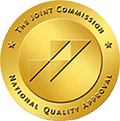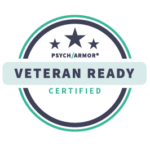Having a conversation with someone who is struggling with alcohol use can be incredibly challenging. It’s often filled with mixed emotions—concern, fear of their reaction, frustration with their behavior, and even confusion about your role. When you see someone you care about harming themselves, neglecting responsibilities, and affecting relationships, it’s natural to feel worried and unsure about how to help without making things worse.
However, it’s important to remember that this conversation comes from a place of genuine care. It’s not about judging or condemning; it’s about showing concern for their well-being and offering support as they take steps toward a healthier life. Knowing how to talk to an alcoholic involves patience and understanding, as well as being aware of what to say to an alcoholic and what not to say to an alcoholic. Though the conversation requires courage, empathy, and careful consideration, it can be the critical first step toward positive change.
What is an Alcohol Use Disorder (AUD)?
Alcohol Use Disorder (AUD) is a medical condition characterized by an impaired ability to stop or control alcohol use despite adverse social, occupational, or health consequences. It’s recognized as a brain disorder and can range from mild to severe.
Understanding that AUD is not a sign of weakness or a lack of willpower is crucial. It involves complex changes in the brain that affect judgment, decision-making, and impulse control, making it incredibly difficult for someone to simply “stop drinking” on their own. Genetic, psychological, social, and environmental factors can all contribute to its development. A healthcare professional typically diagnoses based on specific criteria outlined in the Diagnostic and Statistical Manual of Mental Disorders (DSM-5).
What are the Signs of an Alcohol Use Disorder?
Identifying the signs of Alcohol Use Disorder (AUD) is key to understanding how serious the situation may be. Someone with AUD may show several of the following signs over time, but these are common indicators to watch for:
- Loss of Control: Drinking more alcohol or for a longer period than intended.
- Inability to Cut Down: Persistent desire or unsuccessful efforts to reduce or control alcohol use.
- Time Spent: Spending a significant amount of time obtaining alcohol, using it, or recovering from its effects.
- Cravings: Having strong urges or cravings to drink alcohol.
- Neglecting Responsibilities: Failing to fulfill major obligations at work, school, or home due to alcohol use.
- Social/Interpersonal Problems: Continuing to drink despite persistent or recurrent social or interpersonal problems caused or exacerbated by alcohol’s effects (e.g., arguments with family, losing friends).
- Giving Up Activities: Reducing or abandoning important social, occupational, or recreational activities because of alcohol use.
- Risky Use: Recurrent alcohol use in situations where it is physically hazardous (e.g., driving, operating machinery).
- Drinking Despite Harm: Continuing alcohol use despite knowing it’s causing or worsening a physical or psychological problem.
- Tolerance: Needing increased amounts of alcohol to achieve the desired effect, or experiencing a diminished effect with continued use of the same amount.
- Withdrawal: Experiencing withdrawal symptoms (like tremors, insomnia, nausea, anxiety, seizures) when alcohol use is stopped or reduced, or drinking to relieve or avoid these symptoms.

What to Say to Someone Struggling with Alcohol
When talking to someone dealing with alcohol struggles, approach the conversation with compassion and concern, not judgment.
- “I’m worried about you.”
- “I’ve noticed [specific behavior, e.g., you’ve been missing family dinners] lately, and I’m concerned.”
- “I feel scared when I see [specific consequence, e.g., how much you’re drinking].
- Talk about specific actions and their impact rather than making general accusations.
- “When you drank heavily at the party last week, you said things that seemed to hurt Sarah’s feelings. I was worried about both of you.”
- “I noticed you called in sick to work twice last month after nights you were drinking. I’m concerned about your job.”
- Focus on their health and happiness.
- “I care about you and your health, and I’m worried about how alcohol might be affecting it.”
- “I miss doing [shared activity] with you when you’re sober.”
Let them know you’re there for them.
- “I want to support you in getting help.”
- “Would you be willing to talk to a doctor or a counselor? I can help you find resources or even go with you if that helps.”
- “Recovery is possible, and I believe in you.”
Let them share their feelings and perspective, even if you don’t agree. Try to understand their point of view.
They may react with anger, denial, or minimization. Stay calm and keep expressing your care and concern.
What NOT TO Say to Someone Struggling with Alcohol?
Certain approaches can be counterproductive and shut down communication.
- Avoid Labels and Accusations: Don’t call them an “alcoholic” or “addict.” Avoid accusatory “you” statements like “You drink too much” or “You have a problem.”
- Don’t Lecture or Moralize: Preaching about willpower or morality is ineffective and often alienating. AUD is a medical condition, not a moral failing.
- Avoid Talking When They Are Intoxicated: The conversation will likely be unproductive and may escalate negatively. Choose a time when they are sober and you are both calm.
- Don’t Make Threats or Ultimatums (Unless Prepared to Follow Through): Empty threats undermine trust. If you need to set boundaries (which is important), state them clearly and calmly, focusing on your actions, not controlling theirs (e.g., “I can no longer lend you money if I suspect it’s for alcohol,” rather than “If you drink again, I’m leaving”).
- Don’t Enable: Avoid making excuses for their behavior, covering up for them, or protecting them from the natural consequences of their drinking.
- Avoid Comparisons: Don’t compare them to others (“Why can’t you be like…?”).
- Don’t Expect Immediate Change: One conversation rarely solves the problem. Be patient and persistent in your support.
Steps for Talking to Someone About Their Drinking
When talking to someone about their alcohol use, plan ahead by choosing a private, calm setting where the person is sober. Decide whether a one-on-one conversation or having a trusted person present is best, but avoid making it feel like an ambush unless guided by a professional. Be clear on your goal, whether it’s expressing concern or suggesting help, and prepare mentally for potential reactions like denial or anger, staying calm in your response.
Begin by expressing your love and concern directly. “I care about you a lot, and I wanted to talk about something that’s been worrying me.”
Use the specific, non-judgmental “I” statements and examples discussed above.
Let them respond. Hear them out, even if it’s difficult. Validate their feelings (“I can see this is upsetting for you”) without necessarily agreeing with their points if they are minimizing the issue.
Suggest seeking professional help (doctor, therapist, treatment center). Offer tangible support, like helping them research options or accompanying them to an appointment. Have some information ready (e.g., helpline numbers, websites).
Clearly and calmly communicate any boundaries you need to set for your own well-being (related to enabling behaviors, safety, etc.).
Reiterate your love and support for them (not their drinking) and your hope for their recovery.
The conversation might need to happen more than once. Continue to offer support within your boundaries. It’s important that you take care of yourself. Loving someone with AUD is stressful. Consider resources like Al-Anon (for families and friends of alcoholics) or speaking with a therapist yourself.
Alcohol Treatment and Recovery from Alcohol Use Disorders
Recovery from AUD is a process, often requiring professional help. Treatment approaches vary based on individual needs but typically involve a combination of methods.
- Alcohol Detox: Medically supervised withdrawal management to safely handle potentially dangerous withdrawal symptoms.
- Residential Treatment: Living at a facility for structured, intensive therapy, counseling, and support (usually 30-90 days or longer).
- Outpatient Treatment: Attending therapy and counseling sessions regularly while living at home. Intensive Outpatient Programs (IOPs) and Partial Hospitalization Programs (PHPs) offer more structured care than standard outpatient.
- Medication-Assisted Treatment (MAT): Using FDA-approved medications (like Naltrexone, Acamprosate, Disulfiram) to help reduce cravings or produce unpleasant effects when alcohol is consumed, used alongside counseling.
- Addiction Therapy Programs: Address underlying issues, build coping skills, and prevent relapse.
- Individual therapy
- Group therapy
- Family therapy
- Cognitive Behavioral Therapy (CBT)
- Motivational Enhancement Therapy (MET)
- Support Groups: Peer support groups like Alcoholics Anonymous (AA), SMART Recovery, or Women for Sobriety provide community, shared experience, and ongoing support.
- Aftercare Planning: Developing a plan for ongoing recovery maintenance after formal treatment ends, including therapy, support groups, and lifestyle changes.
Alcohol Treatment and Recovery from Alcohol Use Disorders at Arkview Recovery Center in Mechanicsburg, Pennsylvania
At Arkview Recovery Center, we understand that overcoming alcohol use disorder is not a one-size-fits-all journey. Our dedicated team of professionals provides tailored treatment programs to address both the physical and emotional aspects of recovery. From detoxification to therapy and support groups, we offer a comprehensive approach that helps individuals rebuild their lives and maintain long-term sobriety. If you or a loved one is ready to take the first step toward recovery, we are here to help guide you through this challenging yet life-changing process. Contact us today to begin!



















